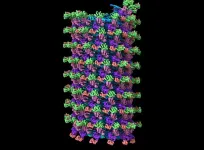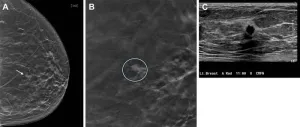(Press-News.org) A new study led by UCLA Health found that a person’s sex and their unique experiences of childhood trauma can have specific consequences for their biological health and risk of developing 20 major diseases later in life.
Although a large body of research has shown that childhood adversity can have long-lasting impacts on a person’s biology and health, there has been little research looking into how different types of stressors affect specific biological functions and health risks.
The new findings, published in the journal Brain, Behavior, and Immunity on Sept. 17, not only revealed that these early stressors can cause specific health impacts, but that these impacts also systematically differed for male and females. The findings are believed to represent one of the most comprehensive analyses of the biological and clinical consequences of adverse childhood experiences, said the study’s senior author, Dr. George Slavich, director of the Laboratory for Stress Assessment and Research at UCLA.
“Most people who have experienced significant stress or early-life trauma never get assessed,” said Slavich. “These findings highlight the critical importance of screening for stress in clinical settings. They also move us beyond a one-size-fits-all approach and toward a precision medicine approach based on patients’ sex and specific stress profile.”
To examine how early exposure to adversity impacts health later in life, Slavich and colleagues used a large data source that includes measurements of early-life adversity, disease biology, and mental and physical health. The data came from more than 2,100 participants in the “Midlife in the United States: A National Longitudinal Study of Health and Wellbeing” study funded by the National Institute on Aging.
Participants reported on the types and severity of adverse childhood experiences they experienced, including financial distress, abuse, neglect, how often they moved, whether they lived away from their biological parents, and whether they had been on welfare. Additionally, participants provided biological samples for calculating 25 disease biomarkers and indicated whether they had ever been diagnosed with any of twenty major health conditions.
Slavich and his team conducted a latent-class analysis of the data to identify clusters of adults who had experienced multiple childhood stressors. Researchers then tested how these clusters and independent stressors were related to 25 biomarkers of inflammation, metabolism, and stress, as well as 20 major health conditions.
The result was two stressor classes for males (High Stress and Low Stress) and three for females (High Stress, Moderate Stress, and Low Stress.) Overall, those in the low-stress classes exhibited the fewest major health issues, with participants’ risk increasing as their stressor exposure increased.
Both males and females in the high-stress classes had the poorest metabolic health and greatest inflammation. However, there were differences between the sexes. The impacts of adverse childhood experiences on metabolic health biomarkers were greater for females than males. Emotional abuse and neglect also tended to have greater effects in males than females for several biomarkers and health conditions such as blood disorders, mental and behavior health issues, and thyroid issues.
Slavich said the findings underscore the need to integrate assessments of stress biology and exposure into clinical care, and to ensure that patients’ risk profiles take sex and specific stressor exposure into account.
“Stress is implicated in 9 of the ten leading causes of death in the United States today,” Slavich said. “It’s about time we take that statistic seriously and begin screening for stress in all pediatric and adult clinics nationwide.”
Funding: This work was supported in part by grant #OPR21101 to Dr. George Slavich from the California Governor’s Office of Planning and Research/California Initiative to Advance Precision Medicine. The findings and conclusions in the article are those of the authors and do not necessarily represent the views or opinions of these organizations, which had no role in designing or planning this study; in collecting, analyzing, or interpreting the data; in writing the article; or in deciding to submit the article for publication.
Article: Alley, J., Gassen, J., & Slavich, G. M. (in press). The effects of childhood adversity on twenty-five disease biomarkers and twenty health conditions in adulthood: Differences by sex and stressor type. Brain, Behavior, and Immunity. https://doi.org/10.1016/j.bbi.2024.07.019
END
Childhood trauma linked to major biological and health risks
UCLA researchers say risk for numerous health problems, disease biomarkers differ based on sex and type of childhood adversity experienced
2024-09-17
ELSE PRESS RELEASES FROM THIS DATE:
Beneath the brushstrokes, van Gogh’s sky is alive with real-world physics
2024-09-17
WASHINGTON, Sept. 17, 2024 – Vincent van Gogh’s painting “The Starry Night” depicts a swirling blue sky with yellow moon and stars. The sky is an explosion of colors and shapes, each star encapsulated in ripples of yellow, gleaming with light like reflections on water.
Van Gogh’s brushstrokes create an illusion of sky movement so convincing it led atmospheric scientists to wonder how closely it aligns with the physics of real skies. While the atmospheric motion in the painting cannot be measured, the brushstrokes can.
In an article published this week in Physics ...
Excess body weight and the risk of second primary cancers among cancer survivors
2024-09-17
About The Study: In this cohort study of older survivors of nonmetastatic cancer, those who had overweight or obesity at the time of their first cancer diagnosis were at higher risk of developing a second cancer, especially an obesity-related second cancer. Given the high prevalence of overweight and obesity among cancer survivors, it is important to promote survivorship care guidelines recommending weight management and increase awareness of second cancers among physicians and cancer survivors.
Corresponding author: To contact the corresponding author, Clara Bodelon, Ph.D., M.S., email clara.bodelon@cancer.org
To access the embargoed study: Visit our For The ...
Outcomes by race and ethnicity following a Medicare bundled payment program for joint replacement
2024-09-17
About The Study: This cohort study shows that the Comprehensive Care for Joint Replacement program outcomes differed by race and ethnicity for patients covered outside traditional Medicare, with home discharge rates increasing more for Hispanic compared with non-Hispanic white patients. These findings suggest the importance of considering differential outcomes of Medicare payment policies for racial and ethnic minority patient populations beyond the initially targeted groups.
Corresponding author: To contact the corresponding author, Narae Kim, Ph.D., ...
LJI discovery paves the way for antivirals against Ebola virus and its deadly relatives
2024-09-17
LA JOLLA, CA—At this moment, the world has few tools to combat deadly filoviruses, such as Ebola and Marburg viruses. The only approved vaccine and antibody treatments protect against just one filovirus species.
Scientists at La Jolla Institute for Immunology (LJI) are working to guide the development of new antivirals by leading some clever enemy reconnaissance. These researchers use high-resolution imaging techniques to examine a virus's molecular structure—and uncover where a virus is vulnerable to new therapies.
In a new Cell study, scientists in LJI's Center for Vaccine Innovation share the first ...
Advanced 3D mammography detects more breast cancers, fewer false positives
2024-09-17
New Haven, Conn. — The newer, 3D form of breast screening, known as digital breast tomosynthesis (DBT), is more effective at detecting breast cancer than traditional 2D digital mammography (DM). That’s the conclusion of an analysis of 13 years’ worth of screening data conducted by Yale Cancer Center researchers. The data also suggests that 3D mammograms could reduce the incidence of advanced cancer diagnoses.
“Most of the time, women will do better with 3D mammograms since their ...
How an MBA can empower entrepreneurs
2024-09-17
Many leading entrepreneurs have questioned the value of investing in an MBA if you want to run a successful start-up. But a recent survey conducted with members of the INSEAD community shows that going to business school can help ensure that any entrepreneurial scheme has a better chance of achieving greater impact and long-term success.
According to the INSEAD Alumni Entrepreneurship Report 2024, 73 percent of the INSEAD students and graduates surveyed embarked on entrepreneurial activities following their time at the global business school. More than ...
Ten-year study shows tomosynthesis improves breast cancer detection
2024-09-17
OAK BROOK, Ill. – According to a new 10-year study, screening for breast cancer with digital breast tomosynthesis (DBT) increases cancer detection rates and significantly reduces the rate of advanced cancers compared to conventional 2D digital mammography. The findings were published today in Radiology, a journal of the Radiological Society of North America (RSNA).
Mammography is considered the gold standard in breast cancer screening for the general population. However, conventional 2D mammography, in which a low-dose X-ray system produces pictures of the inside of the breast from two angles, fails to detect approximately 20% of breast cancers. It is ...
How can climate adaptation succeed in the long run?
2024-09-17
Invitation for Members of the Press
How can climate adaptation succeed in the long run?
On the basis of nine case studies from around the world, the Hamburg Climate Futures Outlook 2024 identifies the conditions for successfully and sustainably adapting to the impacts of climate change. A study recently released by the University of Hamburg’s Cluster of Excellence for climate research (CLICCS) demonstrates the urgent need for developing new adaptation strategies while also reducing climate-harmful emissions – and offers corresponding practical recommendations.
As in past installments, the experts assessed ten key social processes that are relevant for deep ...
Moderate coffee and caffeine consumption is associated with lower risk of developing multiple cardiometabolic diseases, new study finds
2024-09-17
WASHINGTON—Consuming moderate amounts of coffee and caffeine regularly may offer a protective effect against developing multiple cardiometabolic diseases, including type 2 diabetes, coronary heart disease and stroke, according to new research published in the Endocrine Society’s Journal of Clinical Endocrinology & Metabolism.
Researchers found that regular coffee or caffeine intake, especially at moderate levels, was associated with a lower risk of new-onset cardiometabolic multimorbidity (CM), which refers to the coexistence of at least two cardiometabolic diseases.
The prevalence of individuals with multiple ...
New four-year, $3.26 million grant from the National Institute of Neurological Disorders and Stroke establishes the Mount Sinai Center for Undiagnosed Diseases
2024-09-17
New York, NY (September 17, 2024) – A new four-year, $3.26 million grant from the National Institute of Neurological Disorders and Stroke (NINDS), a part of the National Institutes of Health (NIH), establishes the first Undiagnosed Diseases Network (UDN) site in the New York metropolitan area. Patients of all ages with difficult-to-diagnose diseases can apply to have their cases studied intensively by the new Mount Sinai Center for Undiagnosed Diseases using state-of-the-art genomic approaches as soon as the beginning of 2025.
These funds expand the work of the Undiagnosed Diseases Program, previously ...
LAST 30 PRESS RELEASES:
Alkali cation effects in electrochemical carbon dioxide reduction
Test platforms for charging wireless cars now fit on a bench
$3 million NIH grant funds national study of Medicare Advantage’s benefit expansion into social supports
Amplified Sciences achieves CAP accreditation for cutting-edge diagnostic lab
Fred Hutch announces 12 recipients of the annual Harold M. Weintraub Graduate Student Award
Native forest litter helps rebuild soil life in post-mining landscapes
Mountain soils in arid regions may emit more greenhouse gas as climate shifts, new study finds
Pairing biochar with other soil amendments could unlock stronger gains in soil health
Why do we get a skip in our step when we’re happy? Thank dopamine
UC Irvine scientists uncover cellular mechanism behind muscle repair
Platform to map living brain noninvasively takes next big step
Stress-testing the Cascadia Subduction Zone reveals variability that could impact how earthquakes spread
We may be underestimating the true carbon cost of northern wildfires
Blood test predicts which bladder cancer patients may safely skip surgery
Kennesaw State's Vijay Anand honored as National Academy of Inventors Senior Member
Recovery from whaling reveals the role of age in Humpback reproduction
Can the canny tick help prevent disease like MS and cancer?
Newcomer children show lower rates of emergency department use for non‑urgent conditions, study finds
Cognitive and neuropsychiatric function in former American football players
From trash to climate tech: rubber gloves find new life as carbon capturers materials
A step towards needed treatments for hantaviruses in new molecular map
Boys are more motivated, while girls are more compassionate?
Study identifies opposing roles for IL6 and IL6R in long-term mortality
AI accurately spots medical disorder from privacy-conscious hand images
Transient Pauli blocking for broadband ultrafast optical switching
Political polarization can spur CO2 emissions, stymie climate action
Researchers develop new strategy for improving inverted perovskite solar cells
Yes! The role of YAP and CTGF as potential therapeutic targets for preventing severe liver disease
Pancreatic cancer may begin hiding from the immune system earlier than we thought
Robotic wing inspired by nature delivers leap in underwater stability
[Press-News.org] Childhood trauma linked to major biological and health risksUCLA researchers say risk for numerous health problems, disease biomarkers differ based on sex and type of childhood adversity experienced




